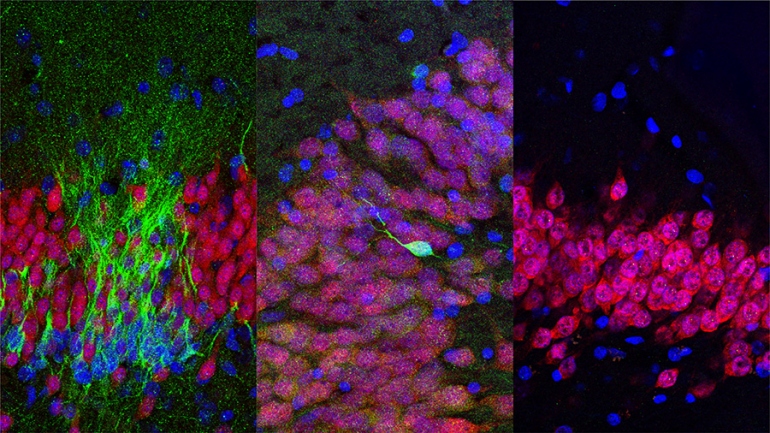Birth of New Neurons in the Human Hippocampus Ends in Childhood
March 7, 2018 | By Nicholas Weiler

Young neurons (green) are shown in the human hippocampus at the ages of (from left) birth, 13 years old and 35 years old. Images by Arturo Alvarez-Buylla lab
One of the liveliest debates in neuroscience over the past half century surrounds whether the human brain renews itself by producing new neurons throughout life, and whether it may be possible to rejuvenate the brain by boosting its innate regenerative capacity.
Now UC San Francisco scientists have shown that in the human hippocampus – a region essential for learning and memory and one of the key places where researchers have been seeking evidence that new neurons continue to be born throughout the lifespan – neurogenesis declines throughout childhood and is undetectable in adults.
